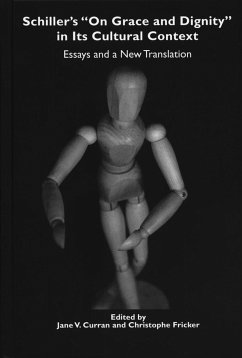
Kantian Dignity and Its Difficulties
Versandkostenfrei!
Versandfertig in über 4 Wochen
89,99 €
inkl. MwSt.
Weitere Ausgaben:

PAYBACK Punkte
45 °P sammeln!
Karl Ameriks defends Kant's doctrine that all human beings have a moral capacity that gives them unconditional dignity, and explains how the reception of this influential doctrine in European and American intellectual history has been marred by misunderstandings.













